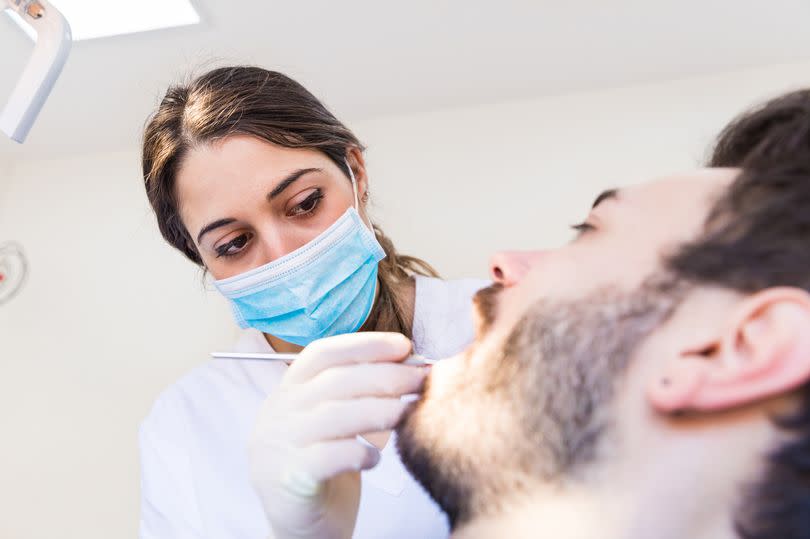Dentist on 'secret codes' used 'behind your back' at check-ups

A dentist has lifted the lid on the 'secret codes' they use during check-ups that might leave patients puzzled. Visiting the dentist is often an anxiety-inducing experience, particularly when you're in the dark about the dental jargon being used.
Most dentists are adept at breaking down the health of your teeth into layman's terms, understanding that not everyone has spent half a decade studying dentistry. They aim to make sure you know whether your oral health is up to scratch or needs attention.
But there are times when the dental dialogue might just fly over your head. Remember your last dental visit? Did the dentist reel off a series of numbers while inspecting your teeth and gums, leaving you baffled? Well, now a dentist has revealed the 'secret' codes they utter 'behind your back', allowing you to be in the know next time, reports The Mirror.
READ MORE Seven of the best TikTok travel accessories for under £20 on Amazon
Dr Onkar Mudhar, a London-based dentist, took to TikTok to demystify "what the code means". He said: "You come to see us, the dentists, and we poke around your gums and we save a few numbers," adding, "One, two, three or four. Sometimes it hurts and you get angry at us, because it doesn't feel nice, other times it's not really a problem, but I know you're thinking, 'what are they saying about me? '".
He continued by promising to finally reveal "what they mean and essentially why we're talking in code behind your back". Dr Mudhar explained that during a check-up, a dentist will use a "ball-ended" gum probe, which is blunt, to gently assess your gums.
So, the best thing you can hear when your dentist is poking your gum is zero, which, according to Dr Mudhar, means it's "healthy" as can be. If you hear a number one, it means "you've got bleeding in the gaps, which is caused by inflammation". He continued: "A number two means you've got a bit of build-up along the teeth, similar to limescale in the kettle".
If the dentist says three, it means "there's a bit more bleeding and a bit more inflammation," and that you should "improve your oral hygiene routine as soon as possible". What you definitely don't want to hear is four, which "means full blown gum disease". The dentist warned this means you "need to see a specialist or get your dentist to start treating that for you before it progresses".
He also added that if you experience any pain, this is because your "gums are inflamed," not because "someone's being rough or heavy handed". Dr Mudhar added: "This isn't sharp, it can't traumatise the gums. It's actually blunt." If you do feel "lost in the code when chatting to your dentist", Dr Mudhar urged people to tell your dentist - especially if you're in pain during the check-up and don't know why.

 Yahoo News
Yahoo News 
